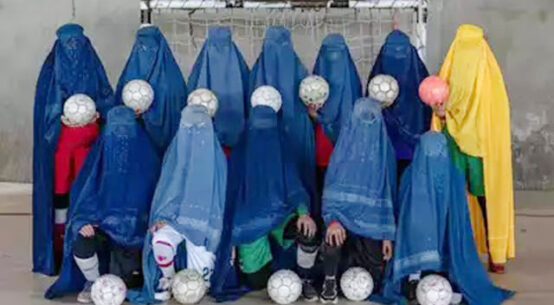Rafael Nadal said he is doing his best to “keep dreaming” after he extended his stay at the Madrid Open by winning a three-hour tussle with Argentina’s Pedro Cachin 6-1, 6-7 (5/7), 6-3 on Monday.
Contesting his home tournament one last time before retirement, the five-time champion gave the world number 91 his shirt after Cachin asked him for a memento from the match.
“Some moments good, some moments not good. I found a way to be through. I think in the third set with some mistakes I was still able to be a bit unpredictable,” Nadal said of his roller-coaster third-round victory.
“Now I’m enjoying. Let’s see how I wake up tomorrow. Playing at home means everything to me, just try my best to keep dreaming.”
Nadal’s reward is a Tuesday last-16 clash with the 30th-seeded Jiri Lehecka, who beat the Mallorcan in a practice session a week ago.
The 37-year-old has been dealing with physical issues, which have limited him to eight matches this season.
Asked if it would surprise him if he managed to beat Lehecka on Tuesday, Nadal said: “Yes, more so after today’s match. I will face a player who is playing at a very high level, who has a very powerful serve.”
While Nadal has already beaten a higher-ranked opponent this week — number 11 Alex de Minaur — he believes the quality of Lehecka’s ball “is another step up”.
Top-seeded Jannik Sinner beat world number 72 Pavel Kotov 6-2, 7-5.
Kazakhstan’s Alexander Bublik beat American Ben Shelton 3-6, 7-6 (7/2), 6-4 to reach the fourth round, where he will face number three seed Daniil Medvedev.
Ons Jabeur called out organisers of European tournaments for giving men preferential treatment at combined events and said “they need to respect women more.”
Jabeur, the 2022 champion in Madrid, was speaking after dismissing ninth-seeded Jelena Ostapenko 6-0, 6-4 to set up a last-eight clash with Madison Keys.
“I feel like we have a long way to go, especially here in Madrid and in Rome, in Europe in general,” she said.
Jabeur said women players were not given the same access to practice courts and were on television less.
“The way they treat women here and men, they’re completely different,” she added.

